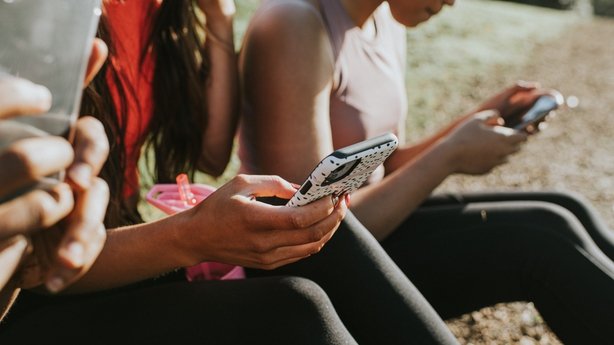Does self-help have a place in mental health?

Counselling psychologist Niamh Delmar asks if self-help has a place in mental health.
Estimations are that the self-help industry in the U.S. alone will reach 14 billion dollars annually by 2025. It has been described as “recession-proof,” and is expanding worldwide.
A phenomenon originating from the ancient sages and healers, it is a growing market in Ireland too. People are seeking to improve, be happier, change, heal and live life to their full potential.
This quest leads to a plethora of books, audio books, websites, blogs, podcasts and motivational speakers. When times are tough, people reach out for solace, and fewer are turning to religion. There are many who are feeling vulnerable and in need of comfort. Self-help heavy weights include Wayne Dyer, Deepak Chopra, Susan Jeffers, Ekhart Tolle and Jon Kabat-Zinn.
The Secret, a book and film by Rhonda Byrne, grossed over 300 million dollars. The titles are strategically chosen to promise, heal or transform. If one does not live up to expectations, there is another to explore, and another and another. While self-help can enhance well-being and facilitate personal growth, it is crucial to be a discerning reader or audience in this saturated market.
 Stock photo from Getty Images.
Stock photo from Getty Images.
Limitations and benefits
Limitations
If someone has a mental health condition or is in crisis, more intensive support and intervention is needed. Self-help can’t assess an individual’s state of mind. While a useful addition to therapy or a professional mental health programme, it is insufficient alone. Treating mental health requires years of training and supervision.
Clinical and Counselling Psychologists study, research, train and are under supervision on average for seven years before being fully qualified. Continued professional development and supervision is ongoing.
Attending therapy is a requisite for many trainees and recommended for practitioners. Furthermore, research shows that the therapeutic relationship is a contributing factor to positive outcomes. Self-help is often marketed by celebrities or those with no training or experience. Information may not be backed up or consist of anecdotes, with a lot of repetition and padding. Myths and misconceptions sometimes filter through.
 Stock photo from Getty Images.
Stock photo from Getty Images.
Everyone needs trustworthy advice, but the wrong advice may be imparted. Sometimes people end up feeling worse about themselves if unable to carry out the guidance. A vulnerable person may be left feeling inadequate and flawed. Someone feeling anxious may not feel able to be calm or someone feeling depressed may not be ready to be positive.
Pacing for each individual does not feature. In the world of self-help, false hope may be conveyed and expectations raised. Claims are often exaggerated with no scientific validation, and quick fixes are often implied. As mental health professionals, we witness that change and relapse prevention is complex and takes time and commitment. A dependence on self –help may delay or thwart someone from working with a clinician.
For many people, self-help may be interesting, but no change is instigated. There can be a placebo effect. For effective outcomes, the material has to be implemented. A short lived high can ensue from inspirational messages, but no long-term effects may arise.
 Stock photo from Getty Images.
Stock photo from Getty Images.
Consumers may skim through chapters or hop from one podcast to the next. Information needs to be thoroughly absorbed and repeated. You can’t skim through the pages or half listen, you need to internalise and activate the material. Without interaction, there is nobody challenging or guiding the process. There can be a very self -absorbed aspect to it, neglecting the value of interconnectedness.
A self-help book can’t diagnose, reflect, provide feedback, individualised interventions, or ‘live’ empathy. “Analysis paralysis” may arise when the person’s intellect is distracting them from actual change. Such intellectualising leads to avoidance of the real issues and diverts from real change. For example reading a self-help book on an unhealthy habit may feel like something has been done about it by just reading about it!
There is no one size fits all. People have individual past histories, life events, personalities and coping levels. Biological, psychological and social factors need to be addressed for psychological well-being. In self-help outlets, gender, race, beliefs or culture may not be factored in.
 Stock photo from Getty Images.
Stock photo from Getty Images.
Benefits
Self-help can be hugely beneficial, when chosen and used appropriately. When people are in therapy with me, I usually recommend relevant appropriate self-help books, apps or websites. This can reinforce therapeutic interventions and provide daily input to foster psychological well-being. In between sessions is a valuable period to reflect, practice strategies and mentally expand.
As a therapeutic adjunct, change and long-term maintenance is boosted. For example if a person is attending counselling for anxiety or panic attacks, daily self-help use can augment interventions and alleviate symptomatology quicker.
For those on a waiting list, it can set the ball rolling. It can also keep an individual’s psychological wellness topped up after therapy is completed.
 Stock photo from Getty Images.
Stock photo from Getty Images.
People who may never get to therapy due to the cost, time, distance or hesitancy can access self-help. It may kick start change and a healthier mental state. There are some self-help practices that have been scientifically validated such as mindfulness, work on thoughts, neuroscience, emotional regulation and factors shown to be associated with happiness.
Self-help can be empowering for many. A person can work on themselves independently and gain a sense of agency. If appropriately chosen, it has the capacity to help with self-awareness, self-esteem, relationships, stress, anxiety and other aspects of mental health.
Insight and psycho-education is often imparted, which is useful. However, readers and audiences needs to be discerning and choose wisely. Selecting well-researched, relevant media from experienced professionals will be more effective for psychological conditions, such as anxiety. Other topics on positivity and happiness may be of benefit for those who feel well and just want a boost.
 Stock photo from Getty Images.
Stock photo from Getty Images.
The positive and negative consequences of self-help is under researched in academic psychology. The limited research reveals that self-help has the greatest success with people with high motivation, resourcefulness and positive attitudes towards it.
Guidance needs to be internalised and used for long term gains. Engaging in self-help is more effective than not doing anything.
